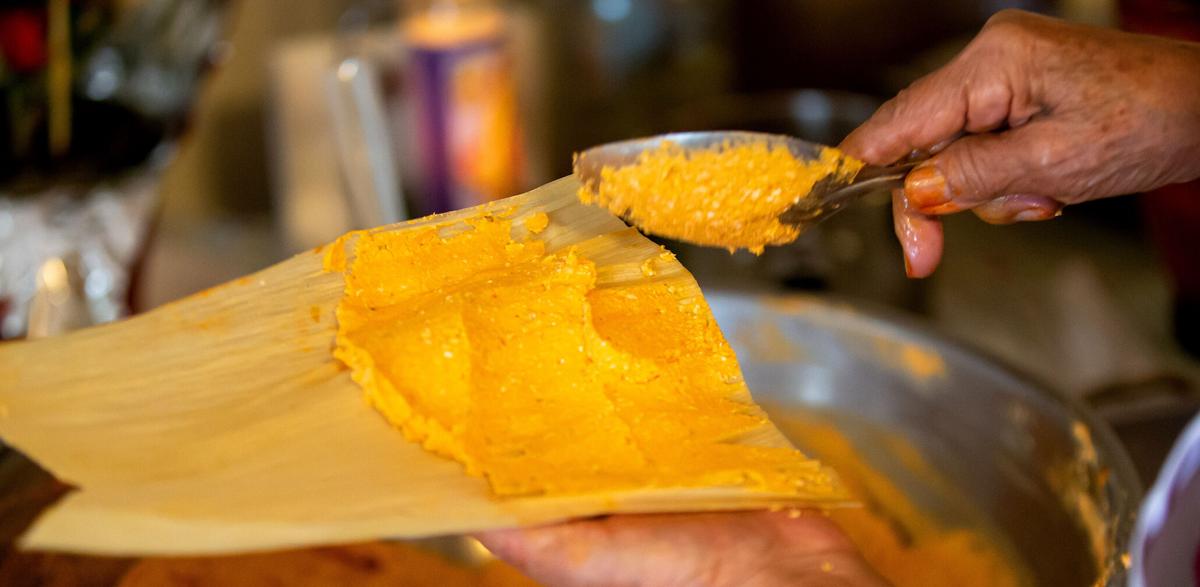PHOENIX — It looks like the sale of homemade tamales on street corners and in parking lots will remain illegal in Arizona, at least for the time being.
Senate Democrats put out a statement late Friday saying they will not provide the necessary votes to override a veto by Democratic Gov. Katie Hobbs of legislation that would have legalized the common practice of people selling home-cooked items such as tamales and empanadas.
That’s even though 10 of the 14 Democrats in the chamber voted for the legislation, House Bill 2509, earlier this month.
None of those Democrats responded to Capitol Media Services’ request that they explain their change of heart.
But Senate Minority Leader Mitzi Epstein, D-Tempe, said it wasn’t until after the vote for the bill that caucus members heard from the Arizona Department of Health Services, which opposes the change.
“This mattered to many people,’’ she said.
However, Epstein said Democrats remain ready to support a scaled-back version of the bill.
She said the version Hobbs vetoed lacked certain safeguards that could convince lawmakers to once again support the idea.
For example, Epstein said there was no definition of “home kitchen’’ in the measure. She said that opened the proposed change to larger-scale operations beyond a family trying to make extra money.
Hobbs wrote in her veto message: “This bill would significantly increase the risk of food-borne illness by expanding the ability of cottage food vendors to sell high-risk foods.”
Amendments were rejected
The situation might have been different, Epstein said, had the measure been amended to include changes sought by Rep. Patty Contreras, D-Phoenix.
During the debate, Contreras, who has more than 15 years of experience as a food service manager, rattled off a litany of the kinds of diseases people can get if food is not cooked at the proper temperature for the necessary time.
She had proposed adding provisions to the measure to require the health department to inspect home kitchens where food was to be prepared before issuing the necessary permit.
That would have included many of the checks that now apply to restaurants, such as inspecting the area to ensure it is free from indication of pests and debris and making sure cooking supplies are clean and stored in sanitized cabinets and that refrigerated food is properly stored and dated.
But that change was rejected by Rep. Travis Grantham, R-Gilbert, sponsor of the measure. He minimized the risks of home-cooked foods, saying he never got sick from these kinds of items purchased on the street, a statement he said he could not make about eating in restaurants.
Epstein said the Democrats’ decision was not political and had nothing to do with the question of whether they should go against the wishes of the Democratic governor.
Their decision to refuse to provide the margin for an override won’t preclude a debate, however.
Grantham said he intends to make the motion Tuesday on the House floor to override Hobbs’ veto. And if he somehow gets the votes there — he needs 10 of the chamber’s 29 Democrats to go along — the measure will go to the Senate.
That would provide an opportunity for supporters and foes of the original measure to explain why they will or will not vote to override the veto.
Public health association’s support
While Epstein said there were concerns by some health experts, those foes, however, did not include Will Humble, executive director of the Arizona Public Health Association.
“My gut says HB 2509 would have been a net public health benefit,’’ Humble said. He suggested that predictions of dire consequences should be taken in context.
He pointed out that until 2011 it was totally illegal to sell foods not made in a licensed kitchen.
That year Arizona lawmakers approved allowing people to make baked and confectionery foods at home and sell them as long as the food did not facilitate the growth of bacteria.
What resulted, Humble said, is what Arizonans see at farmers’ markets, where breads, sweets, fruits, jams and jellies, along with other items, can be openly sold.
“The program has been wildly successful and a big public health benefit,’’ he said. “It helps families earn extra income and improves the social determinants of health,’’ including economic stability.
Humble said he sees HB 2509 as simply expanding on that — with what he believes are sufficient safeguards.
For example, he said, the bill excluded the sale of drinks, fish and shellfish products. Meat products would have to come from an inspected source in accordance with federal regulations.
And he said that foods with dairy, meat or poultry would have to be sold directly by the preparer, with no middleman, and delivered to the consumer in person. It also would have said that foods needing time and temperature controls would have to be maintained at the right temperature, could not be transported for more than two hours, and could not be transported more than once.
Finally, he said, all products would need to be labeled as to where they were made “so there’s a way to conduct food-borne illness investigations.’’
“The full-disclosure provisions of the law mean customers would be buying the food with their eyes wide open, knowing full well that the food wasn’t prepared in a commercial kitchen,’’ Humble said.





